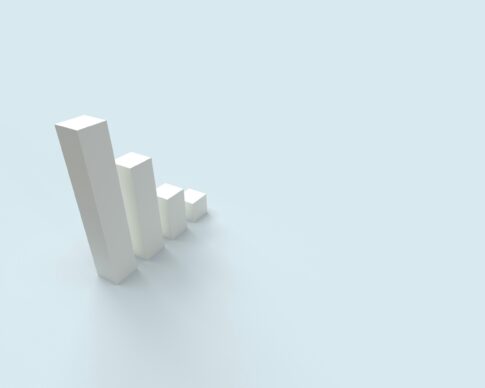Today, I will explain the following website. (AI-generated)
米CPIが“予想通り”なら「小幅なドル安・円高」「日経平均39,000円台回復」も【解説:三井住友DSアセットマネジメント・チーフマーケットストラテジスト】(THE GOLD ONLINE(ゴールドオンライン)) – Yahoo!ニュース
Contents
Understanding the Impact of US CPI on Forex and Stock Markets
The Consumer Price Index (CPI) is a critical economic indicator that measures the average change over time in the prices paid by urban consumers for a market basket of consumer goods and services. Traders and investors closely monitor CPI data as it provides insight into inflation trends, which can influence central bank monetary policies, currency valuations, and stock market movements.
What is CPI and Why Does it Matter to Traders?
CPI is an important measure of inflation, reflecting the cost of living by tracking changes in the price levels of a basket of consumer goods and services. For traders, especially in the Forex market, CPI data can signal potential shifts in a country’s economic health, influencing currency strength or weakness. A higher-than-expected inflation rate may lead to a currency appreciating due to the anticipation of interest rate hikes, while a lower-than-expected rate could result in currency depreciation.
Anticipated Market Reactions to CPI Figures
Market reactions to CPI figures can vary. If the CPI data aligns with expectations, markets may show a muted response. However, significant deviations from forecasts can cause volatility. For instance, if the US CPI data indicates a cooling of inflation, it could lead to a decrease in long-term interest rates, a weaker dollar, and a rise in stock prices, as traders might anticipate a less aggressive interest rate policy by the Federal Reserve.
Deciphering the Core and Super Core Indices
The core CPI, which excludes volatile food and energy prices, provides a clearer view of the inflation trend. The ‘Super Core’ index, which further excludes housing costs, is closely watched by the Federal Reserve for a more accurate measure of inflation. A slowdown in these indices can suggest a less aggressive stance on monetary tightening, potentially leading to bullish stock markets and a weaker dollar.
How CPI Affects Dollar-Yen Exchange Rates
The dollar-yen exchange rate can be directly influenced by US CPI data. A lower-than-expected CPI can lead to dollar depreciation and yen appreciation. However, if the CPI is within expected ranges, the currency impact might be limited, potentially resulting in minor fluctuations in the dollar-yen pair.
Strategies for Trading in Light of CPI Announcements
Forex traders can prepare for CPI releases by setting up trades that could benefit from predicted movements. For example, if a trader anticipates a weaker dollar due to CPI data, they might consider going long on the yen. It’s essential to have risk management strategies in place, such as stop-loss orders, to protect against unexpected market reactions.
Stock Market Strategies: Capitalizing on Economic Indicators
Impact of CPI on the Nikkei Average and US Stocks
The Nikkei Average in Japan and US stock indices can respond positively to a US CPI that suggests a stable inflation rate and continued low-interest rates. Investors may interpret this as a conducive environment for economic growth, leading to a potential recovery in the Nikkei Average and a rally in US stocks.
Understanding Retail Sales Data alongside CPI for Stock Traders
Retail sales data, often released concurrently with CPI, can provide additional insights into consumer spending and the overall economic picture. A combination of rising retail sales and stable inflation could signal a healthy economy, potentially leading to stock market gains.
Investing in Stocks with a Keen Eye on Inflation and Interest Rates
Investors should consider inflation trends and interest rate expectations when making stock market decisions. A stable or declining inflation rate could suggest a favorable environment for equities, as it may lead to lower interest rates and increased consumer spending, which can boost corporate profits and stock prices.













